Search Results
for Leslie Hayward | @leslietron - The Fuse

Cornelia Meyer: No Conflict for Saudis on Aramco IPO and OPEC Participation
Cornelia Meyer, longtime OPEC watcher and CEO of MRL corporation, speaks to The Fuse following the 169th OPEC meeting in Vienna. Meyer addresses OPEC's continued significance even without production targets, the implications for prices, and what to know about the pending Saudi Aramco IPO.

Saudi Energy Minister Khalid Al-Falih: Oil Market is Already Rebalanced
In his first comments to press ahead of the June 2016 OPEC meeting, Saudi Energy Minister Khalid Al-Falih commented on Saudi Arabia's strategy for the oil market. Falih stated that Saudi Arabia also considers the interests of the global economy and non-OPEC producers, that the market is already rebalanced, and expressed concern over the global underinvestment risk.

Iranian Oil Minister Bijan Zangeneh Reiterates Support for Individual Country Quotas
Upon his arrival in Vienna for the June 2016 OPEC meeting, Iranian Oil Minister Bijan Zangeneh said that the main purpose of this meeting is to appoint a new Secretary General, said that $70 per barrel is his preferred price for oil, said that a combined output cap would not benefit Iran, and said that OPEC had played no role in rebalancing the oil market.

Angola Oil Minister: $60 Per Barrel Would be Good Price for Oil
Angolan Petroleum Minister José Maria Botelho de Vasconcelos says that $60 per barrel is a "good" price for oil, and that he will be supporting Nigerian's Mohammed Barkindo as the group's next Secretary General.

Bob McNally: Without OPEC, Oil Market Entering "Long-Term Era of Boom/Bust Price Cycles"
Bob McNally of the Rapidan Group addresses rumors ahead of the OPEC meeting, the future of Saudi oil strategy, oil at $50 per barrel, and a renewed era of oil price volatility.

Joe McMonigle: Saudis May Seek Policy Change in 2017
Joe McMonigle of Hedgeye Potomac discusses the changes taking place at OPEC, including the new Secretary General, return of Gabon, and potential for policy changes under Saudi leadership in 2017.

Tony Posawatz on the Past and Future of Electric Vehicles
Tony Posawatz, longtime EV advocate and industry veteran, discusses why autonomous electric vehicles are the future, and what policymakers can do to expedite their adoption.

Innovation Revolution: XL Hybrids Leads Electrification of Class 2 and 4 Trucks
Tod Hynes, the CEO of XL Hybrids, explains why the company is making hybrid trucks easy and affordable for large truck fleets, and the company's success in developing an advanced hybrid powertrain that is now leading in certain classes of delivery trucks.

Innovation Revolution: Joseph Kopser of moovel on the Next Era of Urban Mobility
As a veteran who served in the War in Iraq, Joseph Kopser, the President of moovel group, has seen what happens when energy policy and national security priorities are not aligned. moovel group is creating a suite of solutions to modernize transit access and create seamless transportation access around the country.

Innovation Revolution: Henry Claypool on Autonomous Vehicles and Americans with Disabilities
Of all those who stand to benefit from driverless cars, few have more to gain than those with disabilities. Henry Claypool, a longtime advocate for those with restricted mobility, discusses how requiring a licensed driver to operate an autonomous vehicle will prevent the disabled from benefiting from this technology, and what policymakers can do to help.

Video: California Debates New Autonomous Vehicle Rules
As self-driving vehicle technology continues to advance, technology advocates and regulators square off on how to enable broader adoption of these vehicles, while managing safety concerns.
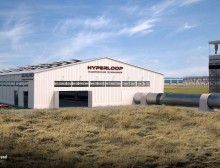
Video: Two Startups Break Ground on Hyperloop Demonstration Facilities
Is the Hyperloop a transportation revolution waiting to happen, or a pipe dream? As two startups break ground on demonstration facilities, we speak with experts to determine if the Hyperloop is more than a hype machine.

Video: Michael Levi on LNG Exports, and the Future of Fuel Economy Standards
What are the impacts of low oil prices on fuel economy standards, oil price volatility, and the future of American energy? The Fuse speaks with Michael Levi, Senior Fellow for energy and the environment at the Council on Foreign Relations at IHS CERAWeek in Houston, Texas.

Video: Elizabeth Rosenberg on the Lifting of Iran Sanctions and Tempering ISIS's Oil Revenues
What risks do companies trying to enter Iran's oil sector face, and how can the international community respond to financial flows to ISIS? The Fuse speaks with Elizabeth Rosenberg of the Center for a New American Security during IHS CERAWeek in Houston, Texas on issues regarding energy and geopolitics.

Video: AGS Seeks to Boost Efficiency of Oil and Gas Production
Peter Kuhn of AGS explains how his company's technology combines valves and algorithms to transform oil and gas production at the wellhead, reducing wastewater and gas flaring while improving company returns.
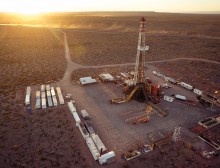
Video: Jim Matheson on Innovative Solutions to the Growing Problem of Produced Water
Produced water has always been a significant challenge for the oil industry, and it's getting worse as companies push into more challenging oil fields. The Fuse speaks with Jim Matheson, President and CEO of Oasys Water, about the problem of industrial wastewater, and new innovative solutions.

Video: Jeremy Martin on the Oil Production Outlook in Mexico, Argentina, and Brazil
Jeremy Martin is Director of the Energy Program at the Institute of the Americas, and an expert on Latin American energy issues. He spoke with The Fuse at IHS CERAWeek about how low oil prices are changing the oil production landscape in Mexico, Argentina, and Brazil.

Video: Neil Atkinson of IEA Discusses the Production Freeze and MTOMR
Is the oil industry in the midst of just another downcycle, or facing fundamental shifts? The Fuse speaks to Neil Atkinson, head of the Oil Industry Markets Division with the International Energy Association, about the Medium Term Oil Market Report, the Russia/OPEC production freeze, and more.

Video: Houston's Economy Lags Under Low Oil Prices
Workers in Houston's oil industry were lured by high wages and good jobs. Now, they are wondering if they want to return to the oil industry when conditions improve.

Video: EU Regulators Hope Diesel Drivers Pivot to Electric Vehicles
The European Parliament wants to introduce new laws to crack down on automobile manufacturers. The regulations are in response to the discovery that Volkswagen sold 11 million cars with emissions cheating software. Some in the EU do not think the proposed laws go far enough.

Video: In the North Sea, Rigs Stand By with Skeleton Crews
The port at Cromarty Firth in Scotland's North Sea is seeing the effects of falling crude oil prices firsthand, with the largest number of mothballed rigs sitting idled in years. Some of the rigs are operating with small "skeleton crews," waiting for production orders, while others are empty and its unclear if they can be reactivated when prices rise.

Video: From the Model T to the Bolt, the Evolution of Vehicle Technology
Every year and at nearly every car show, automakers unveil new amazing new technology that is supposed to revolutionize driving. Automobile crashes cost the American economy nearly $875 billion each year, and with low gas prices, it's expected Americans will be driving more miles. At the Washington auto show, policy makers and experts discussed how new technology, especially fully automated cars, will continue to move the industry forward.

Video: Berlin and the Future of Transportation
There are fewer cars in Berlin today than ten years ago, even as the city's population has increased by over 500,000 people. More car sharing and expanded public transport are just two ways that the city is reducing traffic and vehicle ownership. Self-driving vehicles may be the next stage of this shift.
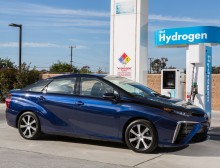
Toyota Promotes Hydrogen Future While Suspending Mirai Sales in California
At the Washington Auto Show, automakers are promoting hydrogen fuel cell vehicles as the future. But simultaneously, Toyota has temporarily halted the sales of its new Mirai fuel cell vehicle in California, because of lack of fueling infrastructure.

Video: European Energy Firms Prepare for Return to Iran
Despite the continued oversupply in oil markets, and the risk of snapback sanctions, European energy companies are still expressing high interest in returning to Iran's oil and gas reserves.
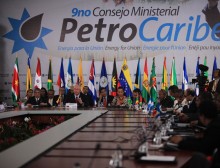
Video: The End of PetroCaribe
Venezuela gives away roughly one quarter of its oil export revenues, in the form of discounted oil to its regional allies like Cuba. Although Venezuelan officials have promised repeatedly that the country would never end the PetroCaribe program, changing political conditions and low oil prices are shifting the calculus, with sweeping implications for the region.

Video: In Wake of Dieselgate Scandal, VW Customers Turn to Electric Vehicles
Consumers have lost confidence in what was supposed to be a groundbreaking automotive technology: Clean diesel promised a highly fuel-efficient vehicle with low levels of pollution. Now that the VW's cheating on emissions tests have been revealed, angry customers are turning to electric vehicles to meet their needs.

Video: Quantitative Trading and Oil Price Volatility
Oil price volatility is way up, attracting attention from technical and quantitative traders. But what's the impact on oil prices?
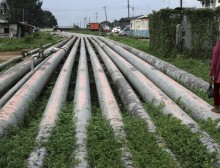
Video: In Nigeria, Low Oil Prices Spur Efforts to Fight Waste and Corruption
Nigeria depends on oil exports for more than 60 percent of state revenue and more than 90 percent of export earnings. But with petroleum trading around $40 a barrel, plummeting oil prices have crippled public finances.

Analyst Cornelia Meyer on the Outcome of OPEC's Meeting
Cornelia Meyer speaks with The Fuse about OPEC's 168th meeting, the oil market outlook for 2016, and the underinvestment risk as a result of today's low prices.

Yasser Elguindi: Market to Rebalance in Q3 2016, Including Iranian Barrels
Yasser Elguindi of Medley Global Advisors discusses the outlook for OPEC and oil markets, with comments on how global oil inventories will continue to build, the potential for heightened geopolitical risk, and how structural demand increases have been built into the market.

Neil Atkinson: Coordinated OPEC Cut with Russia a Far-Fetched Scenario
Neil Atkinson of Lloyd's List Intelligence explains oil market uncertainties surrounding U.S. production, Iran's return to the oil market, Indonesia's return to OPEC, and the potential for a return to the individual country quota system.

Jamie Webster: Oil Market Facing Heightened Uncertainty and Volatility in Coming Years
Jamie Webster discusses the 2016 oil price outlook, the global underinvestment risk, and why nothing has changed about Saudi Arabia's strategy in spite of the rumors.

Iranian Oil Minister Bijan Zangeneh Arrives in Vienna for OPEC Meeting: Full Comments
Minister Zangeneh comments on Iran's desire to see a long-term strategy for OPEC, and the country's production outlook for 2016.

Iraqi Oil Minister Adil Abdul Mahdi Arrives in Vienna for OPEC Meeting
When asked if Iraq would participate in a production cut, Minister Adil Abdul Mahdi stated, "we will meet and see."

Video: Venezuelans Suffer as Oil Prices Languish
In Caracas, Venezuelans are unable to purchase food, antibiotics, or other basic supplies, as the collapse in oil prices has bankrupted the country's economy. Experts argue that even the decision to end domestic fuel subsidies could play a significant role in alleviating the country's dismal fiscal outlook.

Interview: How Autonomous Vehicles will Transform Fuel Consumption
In an exclusive interview, Brad Templeton of Singularity University discusses the many ways that an autonomous vehicles will transform our lives, and the ways we consume energy.

Video: What's Driving Surging American Gasoline Demand?
This year, Americans have driven more miles and consumed more gasoline than any time since 2007, according to U.S. government data. While the economic recovery is helping to boost demand, low oil prices are encouraging motorists to drive more, and purchase less fuel efficient vehicles.
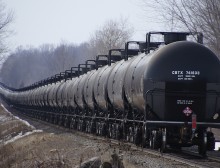
Live from Canada: Communities Push for Stronger Crude by Rail Safety Regulations
Increasing volumes of crude oil shipments are passing through Canada, but communities adjacent to railroad tracks are concerned about the safety of that transport, especially following the tragic 2013 disaster in Lac Megantic, Quebec. We take a look at how regulators and industry are responding.
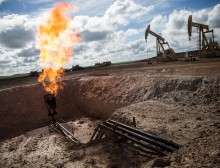
Former Secretary of Defense Bob Gates and T. Boone Pickens Discuss National Security
Bob Gates and T. Boone Pickens discuss the oil market implications of Russia establishing itself in the Middle East.

Live from Los Angeles: Electric Mobility for Low Income Residents
In an effort to combat congestion and smog, Los Angeles is sponsoring an electric vehicle carsharing program for low income areas, hoping to take over 1,000 cars off the road.

Live from Berlin: Volkswagen Scandal Pushes German Automakers Towards Electric, Autonomous Vehicles
As the Volkswagen scandal has taken the shine off of Clean Diesel, we take a look at how the big three German automakers are employing different strategies to create the car of the future. More than ever, companies are finding that next-era mobility will come from vehicles that are electric, autonomous, and networked into the sharing economy.

Admiral Blair: Taking the U.S. off of Oil Would Have Saved the Lives of Many Brave Men and Women
Admiral Dennis Blair, Former Director of National Intelligence and Commander in Chief, U.S. Pacific Command, discusses how his military career led him to the conclusion that ending oil dependence was a critical goal for improving national security.

Live from Texas: Oil Industry Layoffs Have Long Term Consequences
With the fall in prices of crude oil, workers are being laid off—especially in the shale patch. It's a short term strategy which may have a long term costs for the industry. The Fuse spoke with Bently Johnson, a Texas oil worker who recently lost his job and is not optimistic about the future of the oil industry.
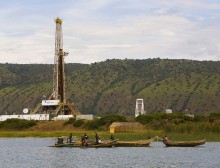
Live from Uganda: Low Oil Prices Delay Oil Extraction and Export
Uganda has delayed construction of a major oil production facility until 2020, citing low prices as the reason for the delay. The East African nation wants to build refineries and pipelines for crude oil exports, but Ugandan officials say more time is needed to negotiate key infrastructure projects.

Introducing The FuseCast: Royal Caribbean President and COO Adam Goldstein on Oil and the Cruise Industry
We explore how Royal Caribbean acquires fuel, efficiency measures for the cruise industry, ship hydrodynamics, and how tiny air bubbles are having a meaningful impact on fuel consumption.
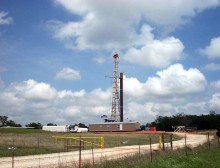
Live from Denver: Oil and Gas Industry Pushes Back Against Local Fracking Bans
In Colorado's Front Range, a battle is heating up between local opponents of fracking, and industry and local government who assert that drillers have the right to operate.

Live From Brussels: Russia, Ukraine, and the European Union Seek to Settle Differences on Gas Supplies
Winter is coming, and with it, the threat of another Russian shutoff of gas supplies to Ukraine.

Live From Moscow: Low Oil Prices are Bankrupting Russia
With some 25 percent of Russia's economy supported by oil and gas revenues, the fall in energy prices has had dismal impacts on the country's economic outlook. For every $1 drop in oil prices, Russia's economy is estimated to lose $1 billion in revenue, meaning the country has lost an estimated $50 billion in budget revenue over the past year.
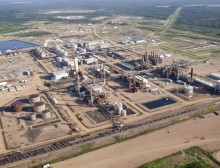
Live from Alberta: Canada's Stranded Energy Assets?
Despite Canada's abundance of energy resources, the future of its energy strategy is unclear.

Live from Silicon Valley: FreeWire and Siemens Bring New Flexibility to EV Charging
To avoid the up-front costs of installing electric vehicle charging stations, while adding convenience for drivers, FreeWire and Siemens are pioneering portable charging stations that bring EV charging right to the customer.

Live from Brussels: What's in Store for the Turkish Stream Pipeline
Gazprom has announced the estimated cost of the Turkish Stream Pipeline, which could provide Russian gas to Europe without passing through Ukraine. Kristine Berzina, energy expert at the German Marshall Fund, discusses the implications.

Live from San Francisco: Driverless Vehicles are Everywhere... Except the Road
Autonomous vehicles have captured our imaginations for decades. Although everything from space rovers to farm combines are already autonomous, the public highway is the final frontier for driverless machines. Now, auto manufacturers and tech companies are betting big on the future of autonomous cars, and competing to make them a reality.

Live from Charleston: Awarding the Energy Security Prize
SAFE announced the winners of its 2015 Energy Security Prize at an event in Charleston, S.C., awarding a total of $175,000 to three companies whose innovations are poised to advance American energy security by helping to end the United States’ dependence on oil.
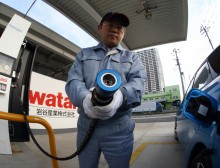
Live from California: Hydrogen Cars Begin to Take Off
As more and more automakers offer hydrogen fuel cell vehicles, Feature Story News takes a look at what's driving initial adoption in the Bay Area.
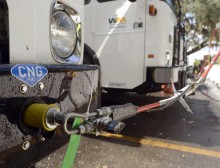
Live from Florida: Trucking Companies Explain Why They Chose CNG
Diesel has been the de-facto fuel of the trucking industry for decades, but more and more companies are finding that switching to natural gas can pay dividends in a short period of time.

Live from Brussels: Marco Giuli on the Potential Impact of Greece on Oil Markets
Marco Giuli, Energy expert at the European Policy Center in Brussels, discusses how an exit of Greece from the Eurozone could influence commodity markets and oil prices.
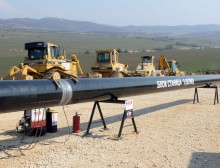
Russia and Turkey Move Forward on Turkish Stream Pipeline
The pipeline would provide Russian gas directly to Turkey via a route through the Black Sea, cutting out Ukraine.

Seattle's Kayaktivists Fail to Delay Deployment of Shell's Polar Pioneer Arctic Drilling Rig
VIDEO EXCLUSIVE: Emboldened by the recent success of a protest, Seattle-based environmental activists took to kayaks in an effort to delay the deployment of Shell's Polar Pioneer Arctic drilling rig.

The Fuse Live from Vienna: OPEC's Rollover Decision Creates Future Risks
Cornelia Meyer, CEO of MRL Corporation, tells us what OPEC's decision means and why it could ultimately lead to sky-high prices in the near future.

The Fuse Live from Vienna: Inside OPEC Headquarters
Olly Barrat reports from inside OPEC headquarters.

The Fuse Live from Vienna: Day Two
Olly Barratt sums up what we've learned at day two of the OPEC International Seminar in Vienna, including the news of Indonesia's intention to rejoin OPEC as a full member.

The Fuse Live from Vienna: Yasser Elguindi on the Oil Demand Rebound, and Market Rebalancing
Yasser Elguindi, Macro Oil Strategist at Medley Global Advisors, speaks with us about the winners and losers of the battle for market share, and risks to alternative transportation systems from low oil prices.

The Fuse Live from Vienna: Former IEA Executive Director Nobuo Tanaka on Transportation Technology
Nobuo Tanaka, former Executive Director of the International Energy Agency, speaks to us about the inevitability of oil price volatility, disruptive transportation technologies, and parallels between OPEC and the fallen Habsburg Empire.

The Fuse Live from Vienna: Quick Hits
Olly Barrat speaks with OPEC Secretary General Abdalla S. El-Badri, UAE Oil Minister Suhail Mohamed Al Mazrouei, and Secretary General of the International Energy Forum, Dr. Aldo Flores-Quiroga

The Fuse Live from Vienna: Ryan Lance, CEO of ConocoPhillips, on Shale's Oil's Resilience
Following bullish statements about the power and resilience of U.S. shale oil production, Ryan Lance, CEO of ConocoPhillips, answers questions about the U.S. crude oil export ban, breakeven prices for shale producers, financing availability, and innovation in the oil patch.
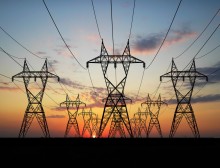
The Fuse Live from Vienna: Vaclav Smil Cautions Against Underestimating OPEC
In this video, Smil discusses the award, public misconceptions of OPEC’s market power, and the oil price volatility.

BREAKING: Indonesia, an Oil Importer, Announces Intention to Rejoin OPEC as Full Member
In an exclusive, Indonesia's Oil Minister announces the country's plans to rejoin OPEC as a full member

The Fuse Live from Vienna: Day One
Ollie Barrett sums up the most interesting remarks and what we've learned from our first day here at the OPEC International Seminar

The Fuse Live from Vienna: Top Quotes from Session 1, Global Energy Outlooks
What you missed from the Global Energy Outlooks session from the OPEC International Seminar.

The Fuse Live from Vienna: Olly Barratt speaks with Neil Atkinson
Neil Atkinson is Head of Analysis at Lloyd's List Intelligence. In our interview, he breaks down his projections for the oil market balance through the remainder of the year, and the likelihood of downside price risks.

The Fuse Live from Vienna: Bahrain Energy Minister Abdul Hussain bin Ali Mirza
Olly Barratt speaks with Abdul Hussain bin Ali Mirza, Bahrain's Energy Minister, about his views on the near-term oil market balance.

The Fuse Live from Vienna: IEA Executive Director Maria van der Hoeven
Maria van der Hoeven, Executive Director of the International Energy Agency, speaks with Ollie Barrett about Saudi Arabia's solar ambitions and the supply/demand balance of the global oil market.

The Fuse Live from Vienna: Bob McNally on OPEC’s Internal Tensions, Black Swans, and a Thirsty World
In an interview from the 6th OPEC Summit, Bob McNally shares his views on what’s next for oil prices, U.S. shale producers, and global demand.

The Fuse Live from Vienna: Jamie Webster on Russia, Iran, and the Future of OPEC
Jamie Webster shares his views on why oil analysts flock to Vienna for every OPEC meeting, even when a change in the group's production quota is rarely expected.
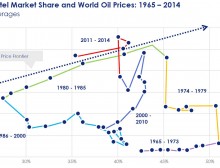
Dr. Robert Wescott Explains Oil Price Dynamics and Cartel Behavior
Robert Wescott, President of Keybridge Research, presents an economic theory of cartel behavior to better understand how market share has determined OPEC's historic influence over global oil prices.

John Hannah on Oil Dependence
John Hannah, former national security advisor to former Vice President Dick Cheney, articulates the national security challenges of oil dependence.





Subscribe